From the Archives, Forum Edition: Getting Creative about Getting Money
EDITOR’S NOTE: The below recap originally ran as part of our coverage of the 2017 Film Independent Forum. This year’s Forum takes place April 26-28. Click here to see a complete schedule and register to attend today by clicking here.
***
The 2017 Film Independent Forum was held at the Directors Guild of America in Los Angeles from October 20-22. Appropriately, the first panel on Saturday covered a topic all filmmakers must be savvy about: film financing. The panel—“Getting Creative about Getting Money”—featured veteran producers speaking to a diverse range of industry experiences as they broke down the so-called “three-legged stool” of film financing: pre-sales, equity and soft money.
Producer Stu Pollard (Bass Ackwards, And Then I Go) moderated the panel, which included Superlative Films Founder Danielle Behrens; Jordana Mollick, partner/producer/manager of Haven Entertainment; Brian O’Shea, CEO of The Exchange; and Illse Ronteltap, head of The Netherlands Film Production Incentive at The Netherlands Film Fund.
PRE-SALES
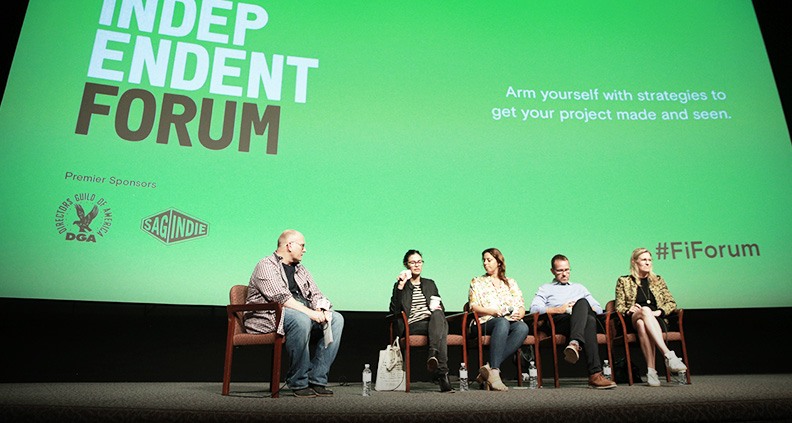
O’Shea said that he had been attending film markets for the past 20 years—Cannes, The American Film Market, etc.—mainly to sell films to international buyers. “Each territory has a distributer within that territory that will acquire a product to distribute themselves to consumers.” Through building relationships with distributers and actively consuming information about their respective marketplaces, O’Shea got a good sense of the relative value of different production elements.
“A producer will bring me a project with an actor, a director, a genre.” With those elements, he said, “I can sell this in Germany and that in France.” Then he runs numbers and completes estimates, seeing if the producer and financier are willing to involve him to actually go out and get hard financial commitments from distributors in local territories. “I pull those numbers together and they make me offers,” said O’Shea.
In the case of micro-budget projects, O’Shea says selling these is more difficult. But if you have an element that’s valuable, it can make a difference. Takeaway: Get creative in finding the right elements that will help your film stick out. Then, make your case with hard statistics and box office comps!
SOFT MONEY
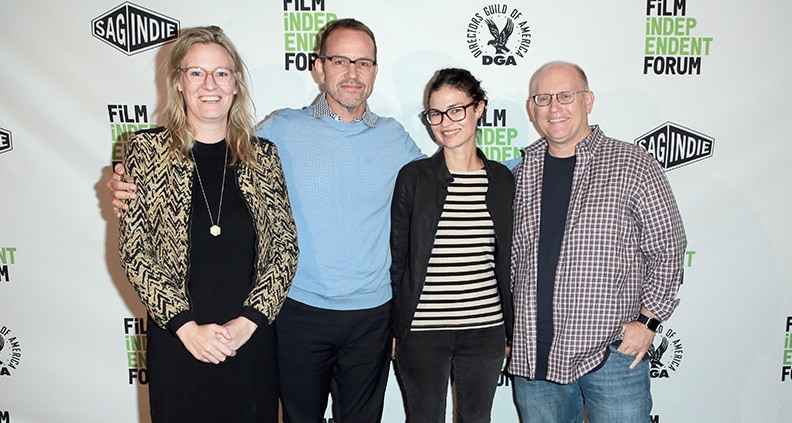
Let’s talk about soft money. Pollard said that with the current market, tax credits are changing at an unprecedented rate on a state-by-state basis. “This is near and dear to me because currently, my home state of Kentucky has been a hotbed of low-budget production Lifetime movies.”
Behrens said that with her film The House of Tomorrow, the production had a tax credit—not an incentive. An incentive is basically a tax benefit. However, some argue that the pros of shooting out-of-state based on tax credits and incentives don’t outweigh the cons, because money is spent on out-of-state talent, travel and lodging, as opposed to in-state cast and crew.
Mollick brought up the example of shooting a TV show in Iowa, a state that does not have a tax credit. However, the food was donated and the high school they used was free. “We ended up getting so much from being in this smaller community as opposed to shooting in Los Angeles,” she said. She also spoke to shooting in Utah, which has a great tax credit. “We did get that [money] back relatively quickly. But you’ve got to be prepared to follow all the rules, do research on all the crew there.”
EQUITY
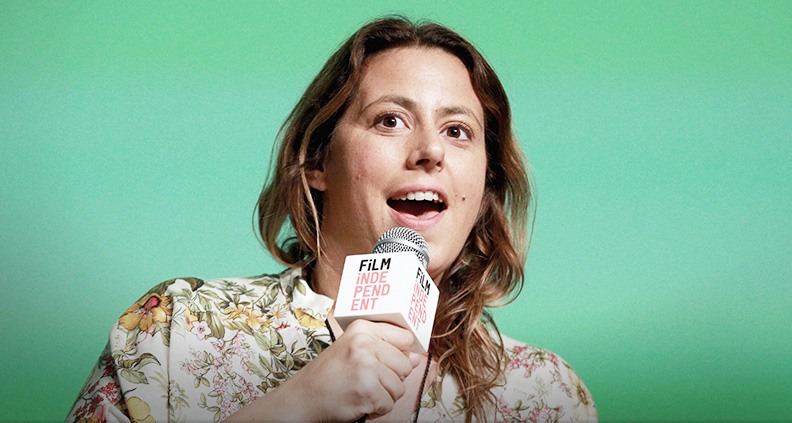
Finding investors for anything—especially independent films—can be difficult. The film may not have a cast attached, so choosing the right investors are important pieces of the puzzle. The whole package must be supremely appealing to investors, and a successful pitch will prove that your film: A) will be fun to be a part of and B) will be successful while also being realistic about the scope of that success.
“I try to find people that might have some connection to the subject matter,” said Behrens. “Often times I’ve raised a chunk of money that’s not cast-contingent because there’s some [kind of] connection.” With investor relations, figure out why someone wants to jump onboard. What’s their incentive? What are they in it for? Are they an aspiring filmmaker? Do they just want to be present on set?
Said Behrens, “If you know in your gut that it’s a wrong match with someone, don’t take their money because it’s such a long-term relationship.” The common thread of the discussion is: you must find investors that are a good creative match. Go with your gut. Take more time to find the right partners—you might be dealing with them for years.
“The risks have to be outlined transparently,” said Pollard. “You have to get people on board who are really rooting for it for reasons that transcend the financial outcome.”
THE INDIE FILM MARKETPLACE
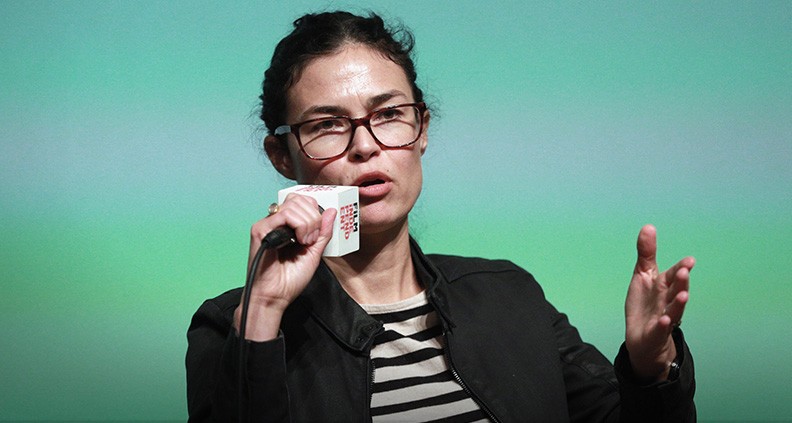
Now, let’s get to strategy.
“Finding a good distributer that knows how to access the different touch points for value is key,” said O’Shea. “Acknowledge the value of the picture domestically and see its performance [domestically] as something that can catapult its value internationally.”
When determining which international distributor to work with, take a look at the movies they’ve previously released and deem whether they were successful or not. “Ask them pointed questions in regards to ‘How did this film perform?’ or ‘What was your deal on this film?’” Make sure to also speak with the producers that the distributor has worked with.
THE AMERICAN FILM MARKET
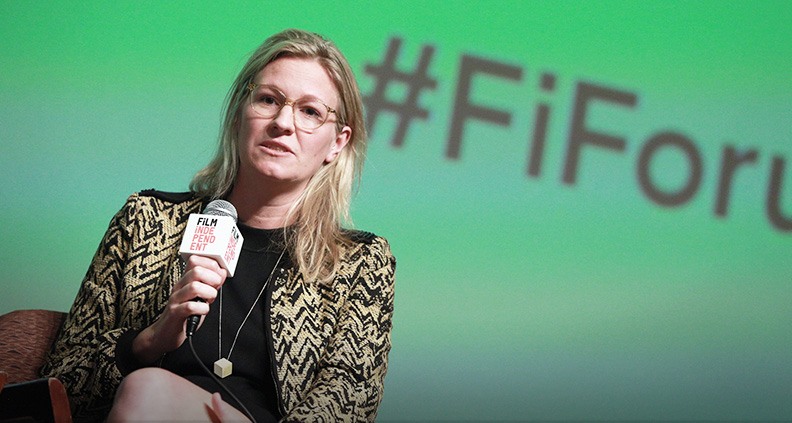
To attend or not to attend, that is the question.
For O’Shea, AFM is where transactions really happen. “It demystifies this whole experience in regards to selling films and financing pictures; you see just a trade show.”
Mollick attended the event years back after having just moved to Los Angeles. “I left because there wasn’t a ton to do without having a specific movie being sold.” She advises producers to develop a plan, “If you are a great networker, I’m sure there’s work to be done.”
Basically, this is a place where you learn about foreign value. How do you know what’s getting traction? O’Shea says, “If it’s being made—if it’s a pre-sale and it’s made—that’s what got traction.”
One last piece of advice…
“It’s very basic. Trust your gut and don’t loose sight of your mission and morals.” said Behrens.
Ask a lot of questions. If you didn’t make money from a successful movie, you probably didn’t put together a great deal. “We all learn as we go, so you can never get lazy,” said Mollick, “You always have to keep working and expanding your knowledge.”
Professionalism is always the answer. “There are going to be moments where you feel like you’ve been attacked,” stated O’Shea, “Just maintain a level head and talk about the facts.” Remember, “It is not about you, it is about the facts.” he noted.
“If you’re going into co-production, you need to surround yourself with people you trust. And [you] are certain of,” said Ronteltap.
Pollard ended this conversation by stating that a film is in a better possible position to sell if more money is raised than you think you need. And always look ahead.

The 2019 Film Independent Forum takes place April 26-28 in the heart of Silicon Beach, at the new LMU Playa Vista campus. Click here to learn more. Buy your 2019 Forum pass today by clicking here. Passes are $195 for Film Independent Members and $265 for non-Members. Passes include lunches, receptions, screenings and free parking all weekend.
Not yet a Member of Film Independent? Click here to join. The 2019 Film Independent Forum is supported by Premier Sponsors SAGindie, Cast & Crew and University Partner Loyola Marymount University School of Film and Television.
Subscribe to our YouTube channel for exclusive interview clips, full panels and other exclusive material from the 2019 Film Independent Forum. Also: be sure to follow Film Independent on Facebook, Twitter and Instagram.